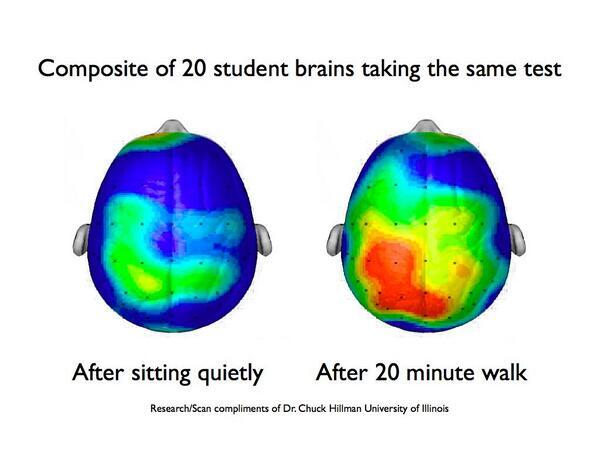This is a guest post written by James Radcliff, a private tutor and education enthusiast at www.uktutors.com.
Are you fed up of walking into a room, only to completely forget why you’re in there? Trust us, we’ve been there. Luckily though, here are some top tips and tricks on how to improve memory:
Play Games & Mind Mapping
Nowadays, improving your memory can be lots of fun by using a wide range of games and apps designed to train our brains without us even realising it. Check out free games from BBC Brainsmart and Brain Metrix or even the Mind Map tools right here on ExamTime. Mind Maps are a great way to get an overview of a project or plan and visually are great to look at. Studies show that aesthetically pleasing concepts make memorising new information easier.
Embrace Spaced Repetition
Your brain has to deal with a lot of information every moment of every day and remembering it all would be next to impossible. In fact, instantly forgetting information is an important skill. But as a result, you need a way to inform your brain about information that you need to keep.
Spaced repetition is exactly that – a way to tell your brain to enter information into your long-term memory. It works by showing you the same information at increasingly long intervals, for example:
- You might see a Flashcard for the first time
- Then see it again after 1 minute
- If you remember it after 1 minute, don’t look at it again for another 10 minutes
- And then for an entire day, week, month and so on….
- Every time you remember the information correctly, the gap will increase
- Until you don’t see that card for months or years
- But you remember it
You can use spaced repetition with a whole deck (or virtual deck) of facts that you need to learn. This is a particularly popular method for language learning.
Use Mnemonics
Trying to remember arbitrary facts and figures can be a nightmare – and the reason is often because these words and numbers don’t mean anything to you. To make them mean something, simply attach each word, or even letter, to a different symbol in your mind.
This can be literal – for instance, remembering the famous nurse Florence’s surname by imagining an armoured knight battling through heavy wind – or you can replace each word with another, more memorable word with the same first letter. Learn more about using mnemonic rules by reading study tip 8 in our popular article “How to Study: 10 Study Tips to Improve Your Learning“.
Be Positive
The more that you tell yourself and everyone around you that your memory is bad, the longer you’ll continue to have a ‘bad memory’. Many experts believe that memory is actually like a muscle – if you train, it will get stronger, unless there’s something deeply wrong. So stop making excuses and start training! Adopt a positive mindset and you’ll be surprised at what you can achieve.
Take a Deep Breath
This is a little technical, so bear with us, but if you switch your breathing pattern to a slow, deep rhythm, you’ll actually make your brain change to Theta waves – something that usually happens during a hypnagogic sleep. These waves make you more receptive to new information, so it’ll be easier for you to remember things that you learn during this state.
Do Some Exercise
Regular workouts aren’t just beneficial for your body. Studies have shown that aerobic exercise can improve circulation (see above image), which means a more efficient brain and prevention of age-induced memory loss. You don’t need to be an athlete to implement these changes, though – a daily half-hour walk will help to improve your memory.
Grow Some Rosemary
Gardening is often lauded as a worthwhile pursuit which is beneficial to the health of both body and mind. However, if you plant some rosemary, you’ll be doing yourself an even bigger favour. The scent of rosemary is said to help aid memory – and as it’s been used to boost recall since the ancient Greeks, we reckon there must be something in it.
Build Yourself A Mind Palace
Mind palaces have been popular recently thanks to their use on the program “Sherlock” in which the famous detective uses a mind palace to remember virtually everything he ever sees or hears.
Mind palaces actually are real and although they don’t work in exactly the same way that Sherlock’s does, they are similar and very effective. Building your first palace takes some work and there is a lot to think about, so if you’re interested, here is a complete guide.
Above all else, keep practicing all of these methods and tips and over time your memory will improve and you will get better at using the various techniques quickly and more effectively.
About The Author
James Radcliff is a private tutor and an education enthusiast. He enjoys maths and mental games and loves to test what the brain is capable of. He works at www.uktutors.com where he helps people to better themselves by finding the right tutor for their needs. Thanks for reading, and good luck building your memory palace.
About the GoConqr Blog
Our blog is part of GoConqr, a Free Learning Platform for Creating, Sharing & Discovering Learning Resources that help students and teachers achieve their learning objectives. Click here to start creating Mind Maps, Flashcards, Notes, Quizzes, Slides Flowcharts & Courses now!









